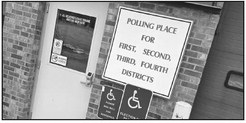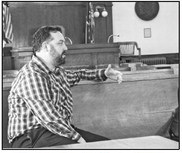Stress


Brian Wilson
Dear Fred, In many ways I envy you Future Reporter Fred.
For you, reading this in the year 2120, all of the things I write about are ancient history. Your grandparents might have a story or two about having to wear masks to school or having rolling quarantines sending classmates home from school.
You likely think products and services being advertised are quaint or excessively primitive compared to the fancy gizmos and doodads you are accustomed to. Since I tend to feel that way when looking back to the issues of the 1920s, I don’t think that people will have fundamentally changed that much.
One area that I expect we are the same is in stress. I am sure folks in your time have the same sorts of stress in your life as we do now about work, families and relationships. I imagine that an ancient ancestor on the plains of Africa or gazing up at the stars through the trees of a primordial forest felt stress about the future and what tomorrow would bring. Would he be able to get the food his family needed, will the coming winter be a hard one, will his children succeed in achieving their dreams?
This year has been an especially stressful one for many people. In addition to the normal day to day worries, 2020 has bombarded humanity with wave after wave of special worries from trigger-happy politicians nearly setting off World War III, to murder hornets, to riots and protests in a long hot summer.
This has been overlaid with the stress that comes with a presidential election year and the quadrennial coin toss between the candidate in column A and candidate in column B.
This year’s election will likely prove to be a historic one that could dramatically influence what being an American means in the future. Then again, it might be that whoever occupies the White House when the dust settles will be remembered as being a just another set of dates and postage-stamp biography for future students to memorize.
All of these stresses are normal, but somehow made worse by the seemingly never-ending COVID-19 pandemic. In the past week, President Donald Trump went into the hospital with COVID-19, raising concerns, not only for his reelection campaign, but for national security. There are many enemies of America that would seek to take advantage of signs of weakness and disarray in our government.
As individuals, people are chafing at the restrictions put in place to try to quell the spread of the virus. Young people in particular are having a hard time of it. Their usual outlets of gathering with friends and going to events aren’t available. Even the escape of a Friday night football game is out of reach in many places.
Hope for the future is in short supply.
I worry that this large-scale feeling of oppression may end up coloring a generation. As a child growing up, there were still many people who had lived through the privations of the Great Depression of the 1930s. Even people who were young children at the time were touched by it and forever after learned to pinch every penny and minimize their risks.
I had hoped that my children would be able to grow up with their eyes on the stars, looking ahead to brighter horizons and experiencing all the wonders that life has to offer. But I fear COVID-19’s long-term impact will be to make us more insular and fractured as people.
I have no doubt that we will make it through this long dark tunnel. The question is what will await us when we exit it and how will the journey have changed us along the way.
Brian Wilson is News Editor at The Star News.




